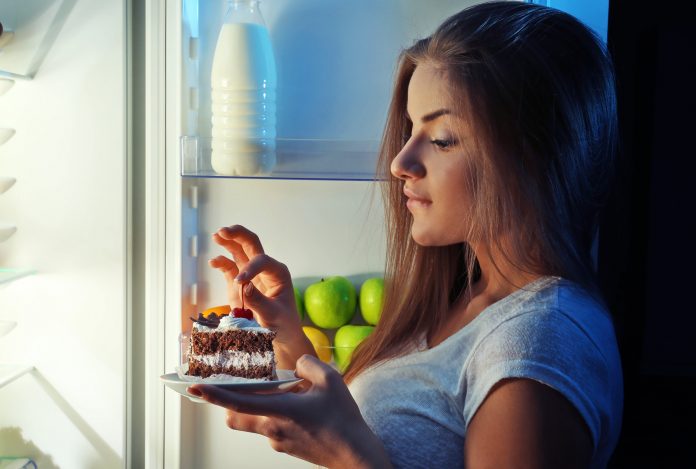For many of us, a satisfying little bedtime snack is an essential part of our evening ritual. Having some cheese and crackers or a bowl of cereal before bed certainly beats trying to sleep with a rumbling belly. And of course there’s also something to be said for ending a weekend night out with that 1 a.m. slice, or ending a lousy day with a big ol’ bowl of rocky road.
At the same time, you may have heard advice warning against eating at night because it’s bad for your digestion, sleep, or weight. Well, before you even think about giving up your beloved bedtime routine (or spontaneous midnight picnic), let’s take a look at what effects that eating before bed can actually have on your health.
Eating before bed and digestion
While our bodies are indeed perfectly capable of doing two things at once—sleeping and digesting, in this case—hitting the sack right after feasting is not ideal for many people because of the way the gastrointestinal (GI) tract is set up.
Between the stomach and the esophagus (the tube that carries food from your mouth to your stomach) is a muscular valve called the lower esophageal sphincter, according to the National Institute for Diabetes and Digestive and Kidney Diseases (NIDDK). Sometimes this valve remains open, allowing the contents of the stomach and digestive juices to flow back up into the esophagus and cause irritation, Scott Gabbard, M.D., a gastroenterologist at Cleveland Clinic, tells SELF. That unpleasant burning sensation (and sometimes taste) in your throat and/or chest is known as gastroesophageal reflux (i.e. acid reflux or heartburn).
Heartburn can be triggered by a few things, including eating and then lying down, according to the Mayo Clinic. In other words exactly the scenario when you eat before bed. When you lie horizontally with a full stomach “[you] lose the effect of gravity that helps to keep the contents of the stomach down,” Dr. Gabbard explains, which causes this backflow. Everyone can get heartburn once in a while, but if you have it more than twice a week you might have what’s called gastroesophageal reflux disease (GERD), according to the U.S. National Library of Medicine.
Another risk of nighttime eating is dyspepsia, more commonly known as indigestion or an upset stomach. This is a set of symptoms—like stomach pain, nausea, getting uncomfortably full or full very quickly, and upper abdomen bloating or burning—that can commonly be triggered by eating quickly; overeating; eating food that is fatty, greasy, or spicy; or drinking too many caffeinated, alcoholic, or carbonated beverages, according to the NIDDK.
Just as with heartburn, mild or occasional indigestion is usually nothing to worry about. If it lasts longer than two weeks or is accompanied by other symptoms, it’s a good idea to see a doctor who can help you figure out if you have an underlying digestive issue such as gastritis, or functional dyspepsia, which is chronic and has no underlying cause, according to the National Institute for Diabetes and Digestive and Kidney Diseases (NIDDK).
But whether you have occasional or chronic acid reflux or indigestion, “eating a large meal before going to bed could worsen the existing symptoms,” Dr. Gabbard says. That’s why the NIDDK advises avoiding late-night eating and waiting two or three hours to lie down after eating.
Also keep in mind the size and contents of your nighttime snack or meal if you experience either of these issues. Bigger meals take longer to digest than light snacks, Dr. Gabbard explains—and the fuller your stomach is the longer it takes to break it all down, and the more likely it is you will experience GERD or dyspepsia. Some kinds of foods also take longer to digest than others, like anything high in fiber or fat. Spicy and acidic foods can also aggravate acid reflux and indigestion, per the NIDDK.
So in general, for your tummy’s sake the ideal nighttime snack is one that’s smaller, milder, lower in fat and fiber, and eaten a couple hours before bed. Of course, if making these changes isn’t helping, see your doctor because there are other lifestyle modifications and medications available.

























